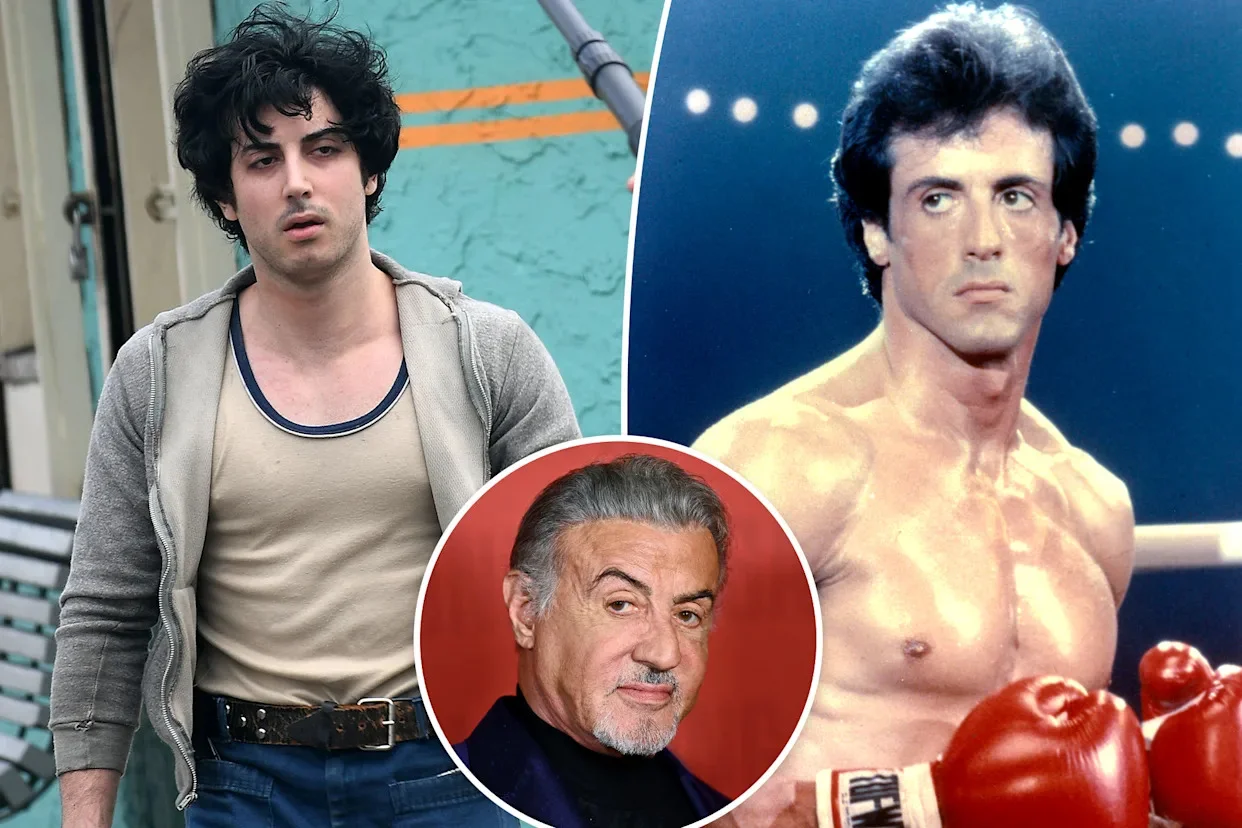Sylvester Stallone, renowned for his iconic role as Rocky Balboa, faced significant hesitation before committing to the Sylvester Stallone Rocky Sequel. Despite his strong connection to the character, Stallone was nearly unwilling to participate in the story continuation that cemented Rocky’s role as a mentor. His concerns centered around how the character’s fate was portrayed in the film trilogy directed by Ryan Coogler, with the decision ultimately shaping the franchise’s emotional core and future possibilities.
Stallone’s Transition From Fighter to Mentor in His Career
Few actors embody the resilience and toughness of action stars like Sylvester Stallone, who uniquely embraces physically demanding roles well into his later years. While no longer always the central focus, Stallone now frequently portrays mentor figures guiding younger characters. His Paramount+ series Tulsa King highlights this shift, featuring Dwight Manfredi, a seasoned figure assembling a group of ambitious newcomers. This evolution mirrors Stallone’s real-life career trajectory, where he imparts experience to emerging talent rather than serving as the primary fighter on screen.
The Rocky Franchise and the Origin of Creed’s Storyline
During promotional interviews for Tulsa King’s third season, Stallone addressed questions about reprising his mentor role as Rocky, the former Heavyweight Champion turned Philadelphia restaurateur. The Creed films follow Rocky as he trains Adonis Creed, the son of Apollo Creed, integrating themes of legacy and generational passage in boxing. Ryan Coogler, the director, initially pitched the idea for Creed years before its release, envisioning a storyline that would conclude with Rocky’s death. Stallone, however, was uncomfortable with this ending and resisted the concept for several years.

I was never comfortable. I dodged that bullet for two years, three years. And Ryan Coogler was very persistent, kept pushing it,
Stallone recounted.
And we had the same agent, but I didn’t want to do it because the way he had written it, Rocky dies. He gets Lou Gehrig’s disease. And I said, ‘I have a big thing about characters like that dying.’ I’d much rather them get on a train going somewhere, and you never see them again. But to die, it will just bum the audience out completely.
– Sylvester Stallone
The initial script depicted Rocky facing the devastating effects of Lou Gehrig’s disease, which alarmed Stallone due to its emotional weight and finality. After extensive discussions, the creative team found a compromise: Rocky’s illness was included, but he survived to continue supporting Adonis. This change allowed Stallone to explore a different kind of performance, transitioning from physical boxing scenes to more dramatic acting challenges.
So once we got over that, I said, ‘Okay, we’ll give it a shot,’ And it was a lot of dramatic acting in that because I couldn’t use my body,
Stallone explained.
I wasn’t fighting. So that was a good challenge, and it turned out pretty well.
– Sylvester Stallone
Why Keeping Rocky Alive Strengthened the Creed Series
Although Coogler might have crafted a dignified farewell for Rocky, the decision to keep him alive proved vital to the franchise’s emotional depth. The second Creed movie relies heavily on Rocky’s presence, as Adonis seeks to avenge his father Apollo Creed’s death by battling the son of Ivan Drago. Rocky’s firsthand experience with past tragedies becomes instrumental to what drives the plot and adds weight to the story’s emotional core.
Retaining Rocky maintains opportunities for future installments and character arcs. Michael B. Jordan, who portrays Adonis, has expressed ongoing enthusiasm for producing another Creed sequel, which would naturally involve Stallone’s character. His willingness to remain involved reflects his enduring passion for Rocky and the influential role the character continues to hold in boxing and film narratives.
Stallone’s Legacy as Rocky and His Impact on Storytelling
Sylvester Stallone’s careful deliberation about Rocky’s fate demonstrates how deeply he values the storytelling aspect of his iconic roles. His insistence on avoiding an overly tragic ending prevented the franchise from alienating audiences and preserved the hopeful spirit that resonates through the films. By evolving Rocky into a mentor figure rather than concluding his journey through death, Stallone ensured the character’s legacy would influence multiple generations within and beyond the boxing ring.
Stallone’s approach has set a precedent for portraying aging heroes with nuance, blending strength and vulnerability while passing the torch to younger characters. This is evident in both his film and television roles, as seen with Tulsa King’s Dwight Manfredi and in the Creed saga. His career decisions underscore a thoughtful commitment to maintaining characters’ dignity and emotional resonance over time.
Looking ahead, the enduring popularity of the Rocky franchise and its ability to adapt suggests that Stallone’s mentorship roles will continue to play a vital part in future projects. This ensures that audiences can expect the character to inspire not only through physical prowess but also through wisdom and guidance, strengthening the overall narrative across new stories and generations.
